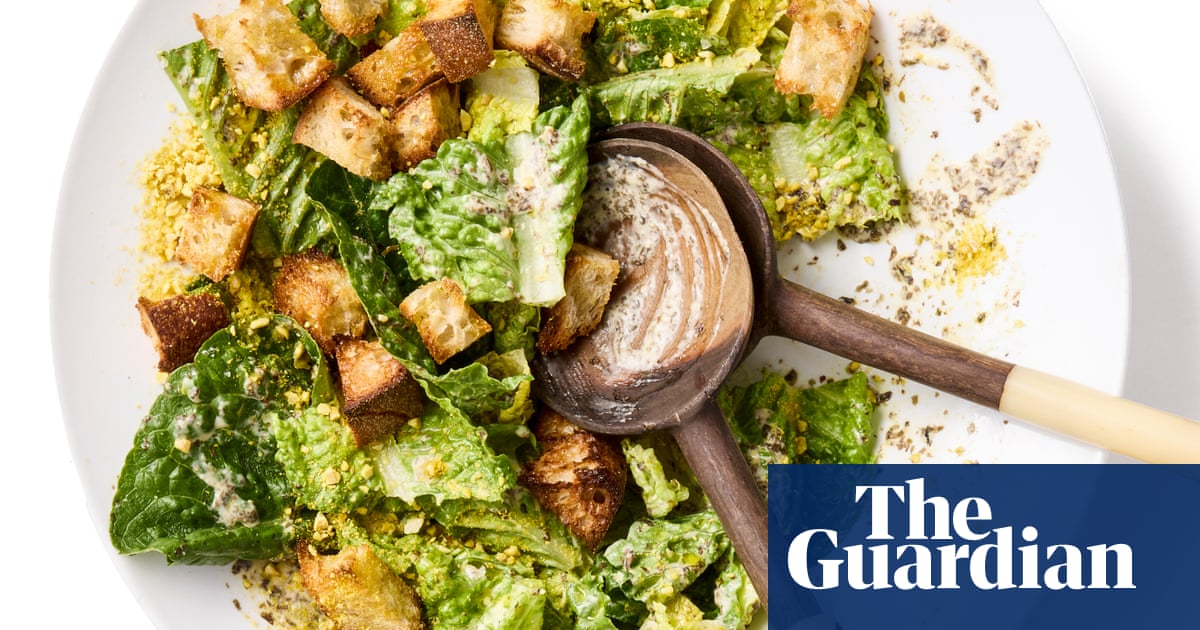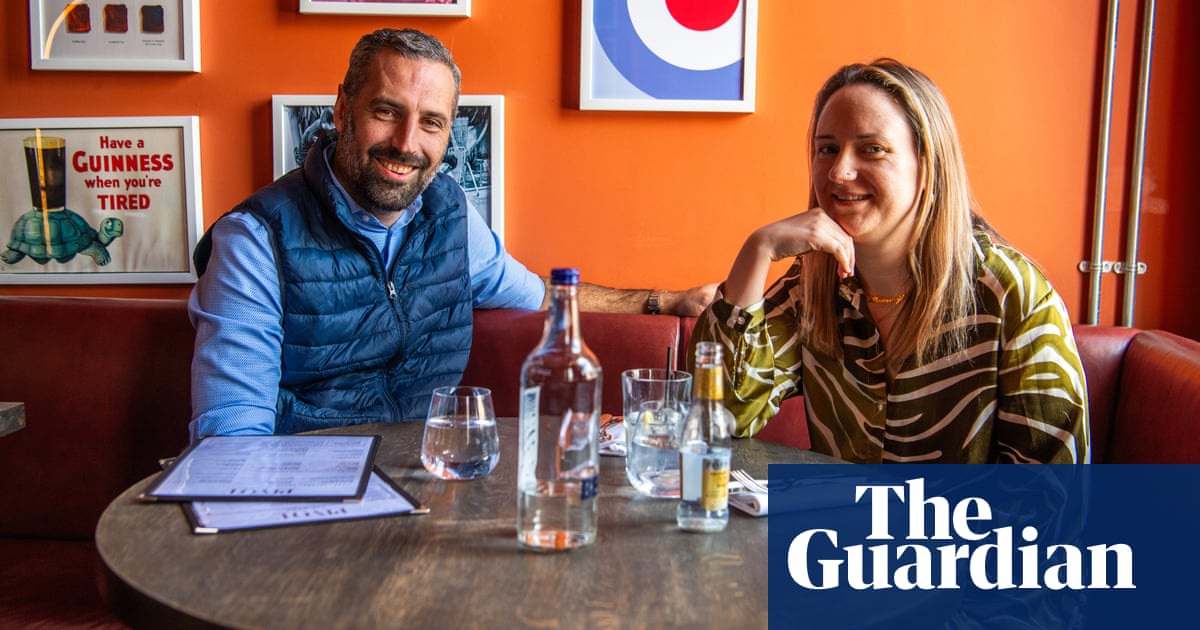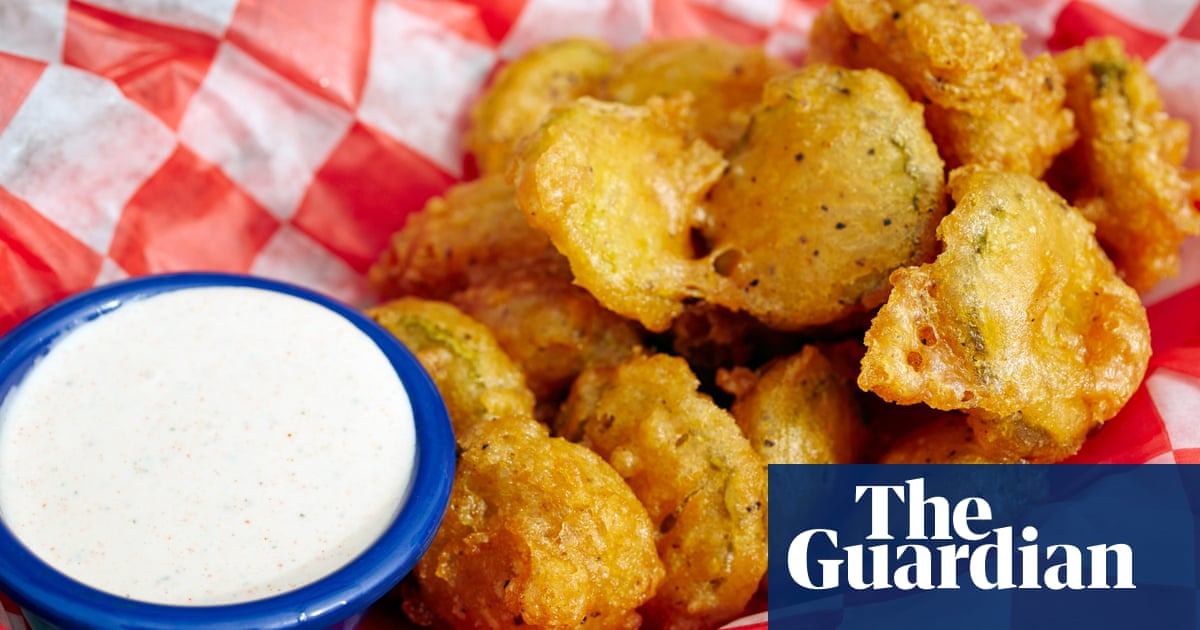Like many modern mothers, I have on occasion piped cold bolognese directly from a pouch into my small child’s open mouth and, radical though it may seem, I refuse to feel guilty about it. There is a lot of panic about ultra-processed foods (UPFs), and baby food pouches, with their high sugar content and dubious nutritional value, are the latest targets. Researchers at the University of Leeds School of Food Science and Nutrition found that 41% of main meals marketed for children had sugar levels that were too high and that 21% of ready-to-eat fruit products, cereals and meals were too watery and not providing adequate nutrition.
It’s not great. But is it news? No parent picks up something called “Heinz fruity banana custard” believing it a fantastic alternative to actual mashed banana, yet this is being treated as the Watergate of the under-4s sandpit crowd. I’m starting to wonder if people have lost their collective minds over processed food. I even saw one comment calling for the death penalty for baby food producers. Baby pouch hysteria is the perfect new addition to the maternal guilt industrial complex.
Look: I am, like many parents, concerned about the usual dietary issues, from childhood obesity to tooth decay to rickets. The way that baby food is marketed is certainly worthy of examination. In a way, I’m the perfect target for content about the dangers of UPFs: my mother, who was very much ahead of the curve on this, taught me how to cook from scratch on a low income, to be suspicious of certain additives and to generally consume things that your great-grandmother would recognise as food. I was mostly raised vegetarian, as was my husband, so we limit our consumption of meat and shop free range and organic as much as we can. You would think this “news” about pouches would worry me.
But I have been writing this parenting column for long enough to be suspicious of any topic that could be used as a stick with which to beat mothers – and it’s usually mothers. Unevidenced claims, such as that the straws on pouches cause speech delays, or contested claims that purees lead children to be fussy eaters, seem designed to shame us into abandoning them and returning to the kitchen where we belong. I am sick of being bombarded by grinning egg-gathering trad wives who put cooking everything from scratch on the same continuum as serving your husband and denying your children lifesaving vaccines. The context into which this UPF debate has landed is one where we are seeing renewed efforts to confine women to lives of domestic toil.
Whether it’s diet or potty training, mothers are blasted as too lazy and too busy on their phones to put in the hard work of mothering. Yet I have yet to meet a baby that has been exclusively fed on baby food pouches, nor a mother who is unaware that a packet consisting largely of pureed fruit is going to be of less nutritional value than a homemade meal cooked from scratch. There are other social, political and economic factors at play here, which are continually elided in UPF coverage.
One is time and labour. The current infant feeding orthodoxy is “baby-led weaning”, which, to my mother’s continued disbelief, involves giving babies pieces of food before they have teeth. For safety, these pieces should be soft and juicy, but sometimes the advice goes too far. I was once advised that my son should gnaw on a chicken bone, and I later found out that this is actually a choking hazard. In other words, purees – even the ones you make at home by blending sweet potatoes with your own breast milk before freezing them in ice cube trays, surely as virtuous as it gets – have become highly unfashionable.
I had various reasons for choosing purees, not least being told by a paediatrician that “there’s a reason apes chew up their babies’ food before giving it to them, and that reason is choking”. But time was an important one of those reasons. Sitting there waiting for an infant to mash a stick of cooked carrot between his gums was not something I was prepared to do. I wanted to work and sleep. I wanted to leave the house and talk to other humans, and feel the warmth of the sun on my skin. I had to live. I chose sanity.
What I was unprepared for was the moral judgment, even though all I did was wait for a few more gnashers to appear. In choosing a pouch, the crime that a mother is being found guilty of is one of convenience. As one mum put it to me this week: “The pouches were a godsend when out and about and without them loads of trapped mums would be stuck in the house. I feel like anything that makes our life easier is a target.”
The Laura Thomas recently wrote a brilliant piece taking issue with those who criticise ultra processed baby foods. To Thomas, the preparation of fresh baby food represents what the sociologists Priya Fielding-Singh and Merin Oleschuk call “foodwork”, ie meal planning, shopping, preparing, cooking and cleaning up. It is work that is often mostly undertaken by women. Foodwork is one of the many facets of the “intensive mothering” culture in which, Thomas writes, “the work of weaning has taken on a valence that I have come to understand as part of a larger project to re-domesticate women”. It is worth reading the essay in full, because it has important things to say about how foodwork is weaponised in ways that rarely take account of structural and social inequalities of class, gender and race. I’d add disability to that list, too, because these food orthodoxies never seem to account for children with additional needs.
Were I to choose to feel guilty about my occasional use of an Ella’s Kitchen pouch, I’d be buying into a neoliberal mindset that emphasises personal responsibility over fixing those inequalities. I’d be buying into an increasingly prevalent nostalgia for the time of home-cooked family meals, the decline of which is blamed almost entirely on working mothers, rather than the fact that we, as humans, are being deprived of systems of communal care, and which contain the seeds of our liberation. You can’t divorce food from politics. I might enjoy cooking from scratch for my family – I have the time and resources to do so – but I refuse to get completely back in the kitchen.
Food companies need to play a part, but my vision for a better society for parents and children goes far beyond condemning pureed fruit. It is one with improved paternity leave, and workplace creches, SureStart centres delivering free weaning and cooking workshops, meal vouchers, the abolishment of the two-child benefit cap. It is one where you don’t need two incomes to afford basic housing costs, or where the intense pressure on parents isn’t such that a pouch so often feels like a solution. “Parents should be actively discouraged from buying these baby pouches,” according to First Steps Nutrition Trust. Well, join the queue of people telling us off. Can’t we be more ambitious? What would a society that not only encouraged, but actually supported and facilitated good food choices look like?
My son is three now, and he’s tall. Despite his earlier pureed diet, he can wolf down a chicken madras, a bowl of boquerones, most things, really (we used to mix the pouches in with more challenging foods to get him used to them). He likes to eat, this boy we built, whose bones I grew inside me for just under eight months. He was built with my breast milk and with formula and, yes, with pureed sweet potato that I made from scratch. But Ella’s Kitchen and Tesco pouches and melty puffs also built him, just as jars of 80s baby food and rusks helped build my generation. It’s exhausting, thankless work building a person. You have to give yourself some grace while doing it. Life is hard. Sometimes, it requires an extra sprinkling of sugar.
-
Rhiannon Lucy Cosslett is a Guardian columnist. The Republic of Parenthood book will be published this summer

 6 hours ago
8
6 hours ago
8













































